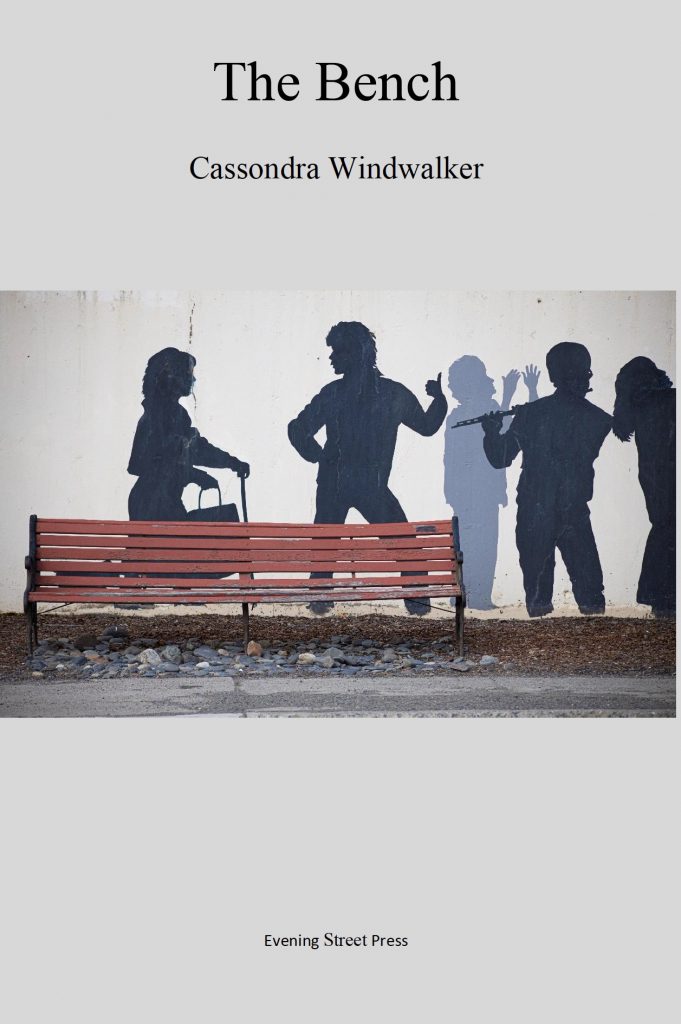
REVIEW BY GABINO IGLESIAS
—
A bench is a place to rest or a chapel or a home or a stage. That said, we often don’t notice because when things are normal, a bench is often just a bench. The pandemic changed that just like it changed most interactions. In Cassondra Windwalker’s The Bench, which won the 2020 Helen Kay Chapbook Contest, a bench is a stage in which we see the world, the people that inhabit it, and the new reality they inhabit.
Pandemic poetry. We knew it was coming, but we probably didn’t expect it to be as full of light and keen observations as Windwalker’s collection is. From the start, The Bench is an invitation to sit down, pay attention, and soak in the stories we’re about to witness:
“what does a bench say
?but I know you are tired, I know you are weak,?
rest with me.?
this testament to frailty became a repository of strength
in the stories lived and breathed and told?
on its sagging seat and iron arms.?
sit here and listen.?
take the stories with you when you go.”
Some of the poems here are dark. There’s death and a nursing home, people walking with empty souls and bad thoughts. However, there is also a strange light here. Windwalker is a superb chronicler of everyday humanity, and in the short book we see how human resilience shines, how we push through even when we have no guarantee that the outcome will be positive. Luckily, sometimes that outcome is indeed positive, and when that happens, the universe gives us one more reason to keep trying. For example, two women sit on a bench in “small talk,” and their silent, brief meeting has an effect on them:
“a month ago, they’d have never acknowledged
each other, but now?
they cling to the trappings of society.?
days spent behind doors, behind walls,
have made this brief intersection?
an oasis. the old woman clutches her prescription
and rises, reluctant to abort this connection.?
she waves good-bye as if they were old friends
now, as if this moment mattered.
the woman in the sugar skull mask goes home
to her empty apartment and does not kill herself.”
These are poems where masks and social distancing make appearances, but they have stories at their core, and the humanity they communicate isn’t dampened or diminished by the awful pandemic that frames the writing and some of the timely topics it tackles (“cops keep killing black people, brown people”). Windwalker has trapped the atmosphere of the early stages of the pandemic perfectly, and her words resonate with what the situation has done to many as people are “urgent and fearful and anguished/as they press to their task and then scurry/back to safety.”
The Bench is full of humanity. It is a dark, heartfelt reminder of a time that’s still here, and it demands to be read because I reminds us that, no matter what, we keep going.
—
Gabino Iglesias is a writer, editor, literary critic, and professor living in Austin, TX. He is the author of ZERO SAINTS and COYOTE SONGS. You can find him on Twitter at @Gabino_Iglesias.
![[PANK]](https://pankmagazine.com/wp-content/themes/pank/assets/images/pank-logo-large.png)
